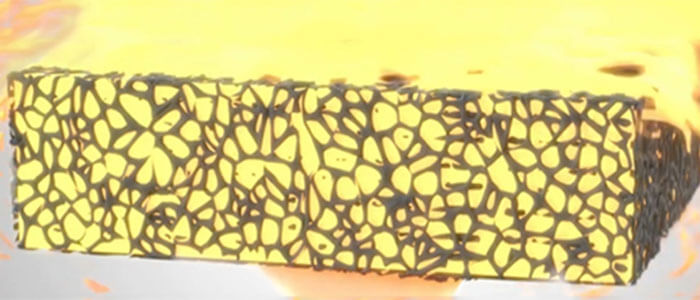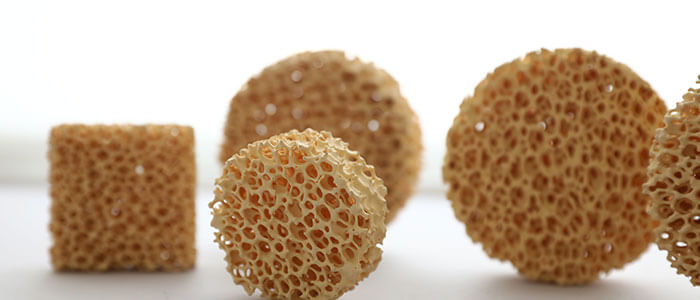In the realm of materials engineering, ceramics have long been revered for their exceptional properties and applications. Among the diverse range of ceramic materials, zirconia ceramic foam filters stand out as a remarkable innovation. These filters, composed of zirconia-based materials, exhibit exceptional thermal, mechanical, and chemical properties, making them indispensable tools in various industries.
This essay aims to delve into the intricacies of zirconia ceramic foam filters, shedding light on their composition, manufacturing process, and the wide array of applications they find in modern engineering.
Composition and Structure of Zirconia Foam Filters:
Zirconia ceramic foam filters are primarily composed of zirconium oxide (ZrO2), commonly known as zirconia, and have a porous, open-cell structure. The zirconia material, renowned for its high melting point, excellent thermal stability, and low thermal conductivity, enables these filters to withstand extreme temperatures and harsh environments. The unique open-cell structure of the foam filters allows for efficient filtration while maintaining a high porosity, allowing the passage of gases, liquids, and molten metals.

Zirconia Ceramic Foam Filter Manufacturing Process:
The production of zirconia ceramic foam filters involves several key steps.
- The process typically begins by combining zirconia powder with a foaming agent to create a ceramic slurry.
- The slurry is then poured into a mold with a desired shape, and a blowing agent is introduced to generate a cellular structure.
- The mold is heated to facilitate the foaming process, and subsequently, the excessive liquid is removed, leaving behind a solidified foam structure.
- The foam is then sintered at high temperatures to enhance its mechanical strength and thermal stability.
- Finally, the filters are cut into the desired shape and size, ready for deployment in various applications.
What are the Benefits of Ceramic Filters for Casting? Properties and Advantages
Zirconia ceramic foam filters possess a multitude of advantageous properties that make them highly sought after in numerous industries.
- Firstly, their high porosity and open-cell structure enable efficient filtration of impurities, such as oxides, non-metallic inclusions, and gas bubbles, from molten metals. This results in improved casting quality, reduced defects, and enhanced mechanical properties of the cast products.
- Secondly, zirconia’s exceptional thermal stability allows these filters to withstand extremely high temperatures without undergoing significant structural changes.
- Additionally, zirconia ceramic filters exhibit excellent chemical resistance, making them suitable for use with a wide range of corrosive liquids and molten metals.
- Furthermore, their low thermal conductivity minimizes heat loss during filtration, ensuring optimal energy efficiency.

What is the Use of Ceramic Foam Filters (Zro2)?
Zirconia ceramic foam filters find extensive applications across various industries.
In the metallurgical industry, these filters are utilized in the casting of steel, iron, and non-ferrous metals. They effectively remove impurities and ensure the production of high-quality, defect-free castings.
In the automotive industry, zirconia ceramic foam filters are employed in the manufacturing of engine components, such as cylinder heads and turbocharger casings, where high temperature and chemical resistance are crucial.
Moreover, these filters are used in the aerospace, defense, and electronics industries, where they contribute to the fabrication of intricate and high-performance components.
Conclusion:
Zirconia ceramic foam filters represent a remarkable advancement in materials engineering, delivering exceptional filtration capabilities, thermal stability, and chemical resistance. Their unique composition and structure make them indispensable tools in industries that rely on high-quality castings and components. As technology continues to advance, zirconia ceramic filters are likely to evolve further, opening new avenues for their application and contributing to the progress of various sectors. The ongoing research and development in this field promise to unlock additional benefits and expand the scope of their utilization, making zirconia ceramic foam filters an essential component of modern engineering processes


